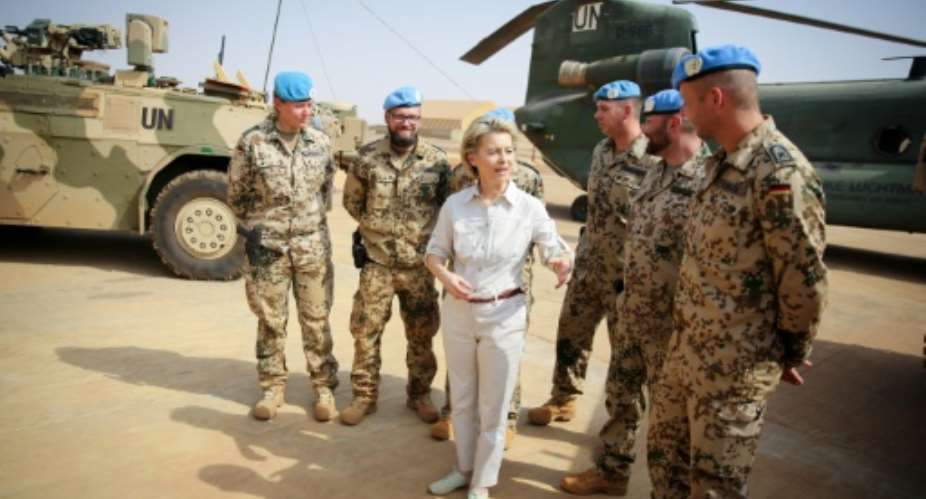Berlin (AFP) - The German government decided Wednesday to raise the number of troops deployed to Mali as part of a UN mission that is known as the world's most dangerous.
The UN's Mali mission, also known as MINUSMA, regularly comes under attack from jihadists. Last year alone, more than 30 troops were killed, more than in any other UN peacekeeping mission.
MINUSMA is tasked with monitoring a peace deal between the government and northern rebels in the west African country.
The German cabinet agreed Wednesday to raise the limit for troop deployment to the country from 650 to 1,000.
The additional soldiers are meant to take over an emergency rescue mission in northern Mali that is currently under the command of the Netherlands.
Four helicopters for transporting injured as well as four combat helicopters will also be deployed.
Northern Mali fell under the control of Al-Qaeda-linked groups in 2012.
The Islamists were largely ousted by a French-led military operation launched in January 2013, but large swathes of Mali remain lawless and prone to attacks.
If Berlin does end up sending 1,000 troops to Mali, then the deployment would be Germany's biggest abroad.
To date, its biggest deployment has been to Afghanistan, where around 890 German soldiers are currently stationed.
The cabinet also extended to January 2018 a mission in northern Iraq, where 150 German soldiers are training Kurdish fighters for combat against Islamic State jihadists.
The German army has already trained around 12,000 Kurdish fighters, as well as others from groups such as the Yazidi minority.
The new deployment plans would still require parliamentary approval, but are unlikely to meet with any resistance as Chancellor Angela Merkel's ruling right-left coalition has a crushing majority.





 We’ll no longer tolerate your empty, unwarranted attacks – TUC blasts Prof Adei
We’ll no longer tolerate your empty, unwarranted attacks – TUC blasts Prof Adei
 Bawumia donates GHc200,000 to support Madina fire victims
Bawumia donates GHc200,000 to support Madina fire victims
 IMF to disburse US$360million third tranche to Ghana without creditors MoU
IMF to disburse US$360million third tranche to Ghana without creditors MoU
 Truck owner share insights into train collision incident
Truck owner share insights into train collision incident
 Paramount chief of Bassare Traditional Area passes on
Paramount chief of Bassare Traditional Area passes on
 Two teachers in court over alleged illegal possession of BECE papers
Two teachers in court over alleged illegal possession of BECE papers
 Sunyani: Victim allegedly shot by traditional warriors appeals for justice
Sunyani: Victim allegedly shot by traditional warriors appeals for justice
 Mahama vows to scrap teacher licensure exams, review Free SHS policy
Mahama vows to scrap teacher licensure exams, review Free SHS policy
 Government will replace burnt Madina shops with a new three-story, 120-store fac...
Government will replace burnt Madina shops with a new three-story, 120-store fac...
